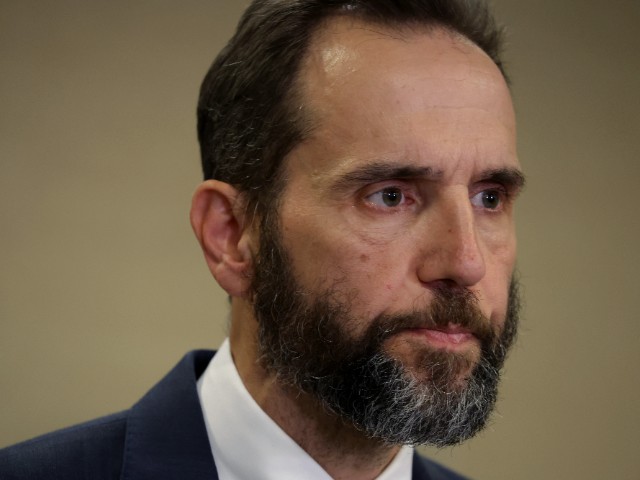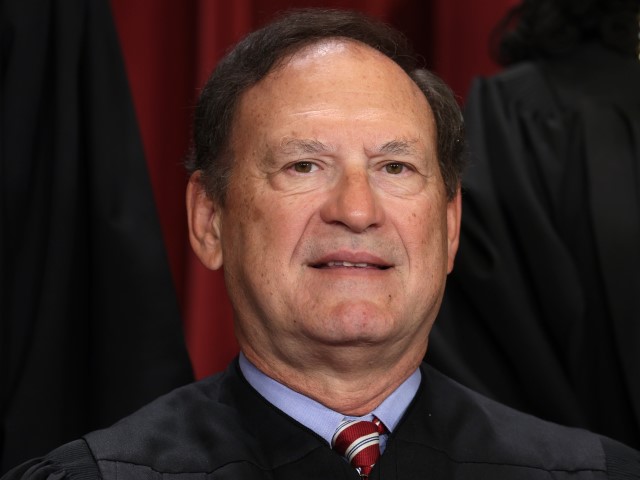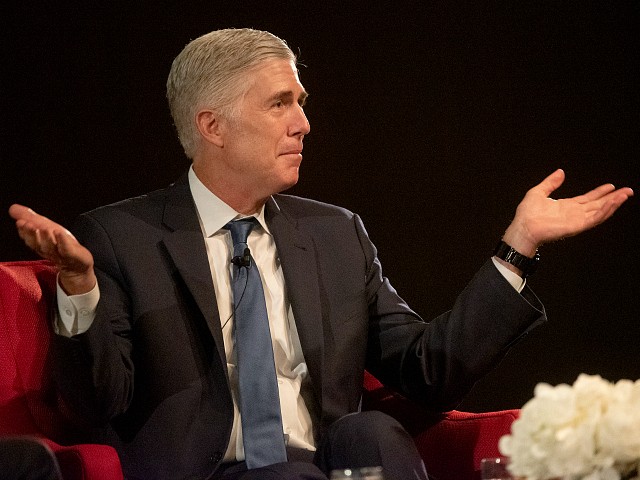A majority of Supreme Court justices sympathized with Donald Trump’s attorneys’ arguments that a president does enjoy some level of immuni...
A majority of Supreme Court justices sympathized with Donald Trump’s attorneys’ arguments that a president does enjoy some level of immunity that endures past the term of office.
The court heard oral arguments regarding if Trump is immune from prosecution on charges of attempting to overturn the results of the 2020 election, as Special Counsel Jack Smith claims.
A federal trial court ruled in Smith’s favor that Trump is not immune from prosecution, but Smith’s prosecution in D.C. has been on hold until the Supreme Court weighs in, likely in late June.

WASHINGTON, DC – JUNE 09: Special Counsel Jack Smith delivers remarks on a recently unsealed indictment against former President Donald Trump at the Justice Department on June 9, 2023 in Washington, DC. Former U.S. President Donald Trump has been indicted on 37 felony counts in the special counsel’s classified documents probe. (Photo by Alex Wong/Getty Images)
Arguments revealed that a majority appears to agree that presidents do enjoy some scope of immunity after their term in office, but the ultimate question will be the establishment of a standard.
If the Court institutes a test, it would vacate (i.e., strike) the lower court decision that former presidents have no immunity, sending that case back to trial court. That court would then undergo a painstaking point-by-point analysis on each fact to determine if immunity exists.
That process could take months. And the Supreme Court appears likely to hold that decision itself would be appealable.
That course, if the Court takes it, would ensure the final outcome of a Trump trial in D.C. comes well after the November 5, 2024 Election Day – a stinging blow to Smith and President Joe Biden, Smith’s boss and Trump’s opponent in that election.
Justices explored several scenarios Thursday by which a president might potentially be charged with a crime.
Justice Neil Gorsuch pressed the government’s Michael Dreeben on the hypothetical scenarios of a president leading a “mostly peaceful” civil rights protest that could obstruct an official proceeding. “So a president then could be prosecuted for the conduct I described after he leaves office?” he asked.
“Probably not,” Dreeben said, arguing that such an action would not be among the “core kinds of activities” of official presidential duties.
Justices also probed if the institution of the presidency would be crippled if presidents are subject to criminal prosecution for anything they’ve done in office by anyone who might accuse them of wrongdoing – essentially creating “open season” on a president after leaving office.
Justice Samuel Alito asked if a president is in a “peculiarly precarious position” due to the nature and consequences of his duties.

United States Supreme Court Associate Justice Samuel Alito poses for an official portrait at the East Conference Room of the Supreme Court building on October 7, 2022 in Washington, DC. The Supreme Court has begun a new term after Associate Justice Ketanji Brown Jackson was officially added to the bench in September. (Alex Wong/Getty)
“Presidents have to make a lot of tough decisions about enforcing the law, and they have to make decisions about questions that are unsettled, and they have to make decisions based on the information that’s available,” he said. “Do you really, did I understand you to say, well, you know, if he makes a mistake, he makes a mistake; he’s subject to the criminal laws just like anybody else?”
Dreeben pushed back, arguing a president “has access to legal advice about everything that he does.”
“Making a mistake is not what lands you in a criminal prosecution,” Dreeben insisted.
Alito was dubious of Dreeben’s claim that a president enjoys a level of protection because federal grand juries would not indict without evidence. Alito cited the “old saw about indicting a ham sandwich,” continuing to ask, “You come across a lot of cases where the U.S. attorney or another federal prosecutor really wanted to indict a case and the grand jury refused to do so?”
Dreeben acknowledged that, after which Alito quipped, “Every once in a while there’s an eclipse too,” to laughter.
The arguments, while positive for Trump, did not reveal the Court would universally agree with his position. There is no indication that a majority of justices would agree some kind of immunity exists that would summarily end the current prosecution.
But if there is some type of standard to determine immunity, the usual practice would be to strike the lower court’s opinion and send it back down to the lower court with the test – a remand that undoubtedly would be a victory for Trump’s legal team.
In further good news for Trump, even the three liberal justices seemed open to there being some level of presidential immunity that endures past the term of office. It is possible those justices concur in part with a decision to implement an immunity test while dissenting in part.

No comments